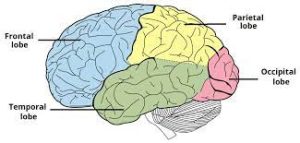What 7 medications can be harmful to the brain?

In this article we will describe 7 medications that can be harmful to the brain.
-
Benzodiazepines (e.g. diazepam, temazepam, clonazepam): May cause cognitive impairment, memory loss, and increased risk of dementia with long-term use
-
Opiates (e.g. morphine, oxycodone): Can cause cognitive impairment, confusion, and increased risk of overdose and brain damage from hypoxia
- Certain anticonvulsants (e.g. sodium valproate, phenytoin, topiramate): Can cause cognitive impairment, memory problems, and mood changes
-
Steroids (e.g. prednisolone): May cause mood changes, anxiety/depression (can be serious, including psychosis), and cognitive impairment. This is usually reversible
- Chemotherapy drugs: Some chemotherapy drugs, especially those used for cancer like lymphoma, bowel cancer, or myeloma, can cause nerve damage. Examples include platinum-based agents (oxaliplatin, cisplatin, carboplatin), taxanes (paclitaxel, docetaxel), and vinca alkaloids (vincristine, vinblastine)
- Certain antibiotics: Particularly those taken for prolonged periods, can also be neurotoxic. Examples include metronidazole, nitrofurantoin, and some cephalosporins
- Alcohol: Even though not a medication it is important to realise alcohol has both short and long-term effects on the brain. In the short-term, alcohol can cause diminished memory, impaired decision-making, and slurred speech. Long-term cellular damage, in contrast, may not be as apparent. Nonetheless it can cause dementia, cerebellar or Wernicke-Korsakoff Syndrome. These are usually permament.
Other drugs that can affect the brain
- Anticholinergic medication (e.g. diphenhydramine, oxybutynin): May cause cognitive decline, confusion, and increased risk of dementia
- Aciclovir, ganciclovir and valganciclovir: Can cause neurotoxicity. This is a rare but serious side effect, primarily in patients with more advanced chronic kidney disease (CKD4, or on dialysis or with a kidney transplant), or in the elderly. These individuals need reduced doses
-
Sedatives/hypnotics (e.g. zopiclone): May cause temporary cognitive impairment, confusion, and increased risk of falls and accidents.
This is a much longer list of neurotoxic medication.
Note. Many of these effects are reversible – i.e. get better if the drug is stopped, or dose reduced.
Summary
In this article we have described 7 medications that can be harmful to the brain. We hope it has been helpful.

